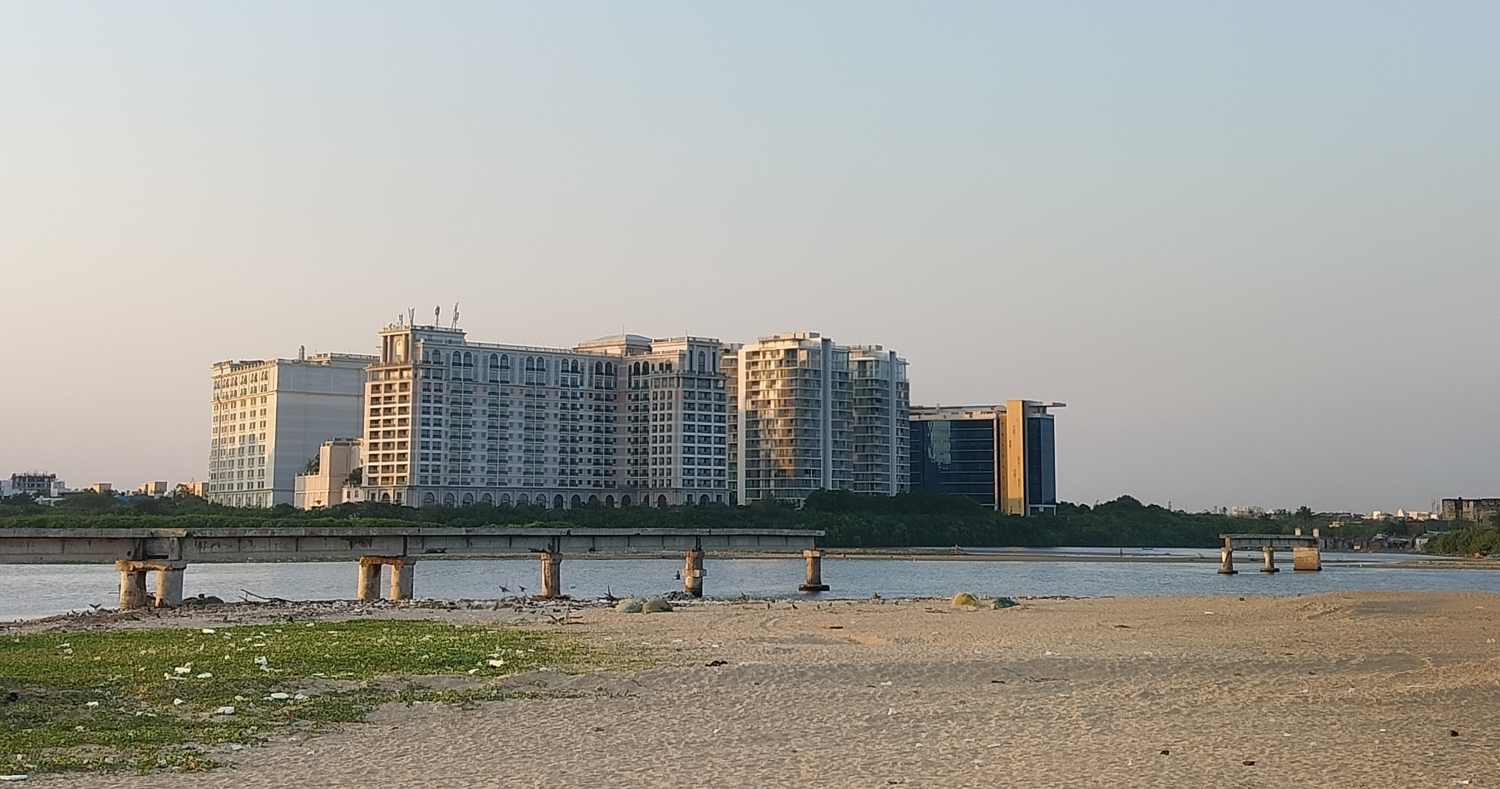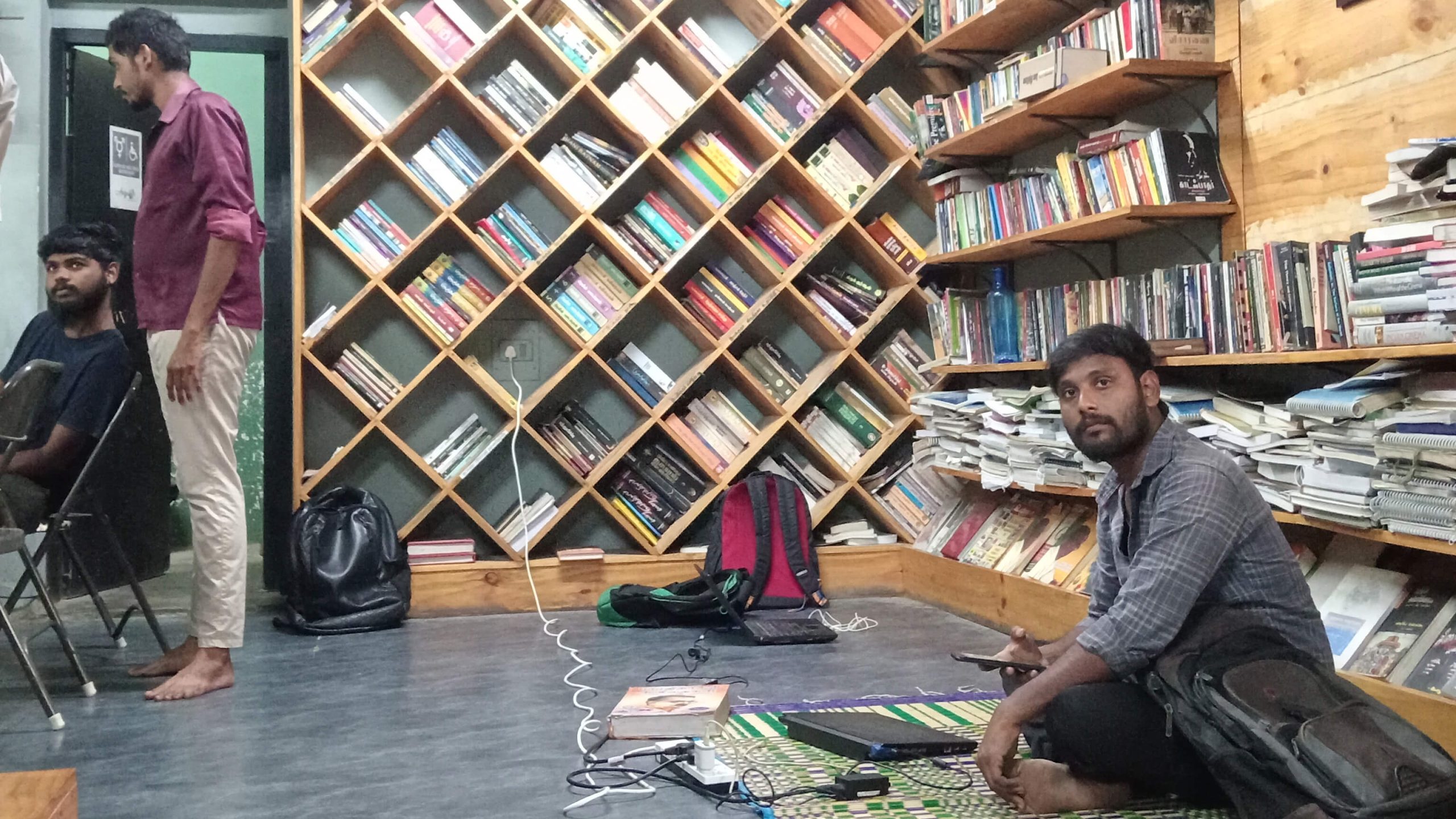Ecologists say the turtle crisis points to a larger collapse of the marine ecosystem
Mohamed Salahudeen and Janaki Pande
Chennai: Over 1,000 dead Olive Ridley turtles washed ashore along Chennai’s coast this January, and raised alarms among conservationists, prompting the National Green Tribunal (NGT) to take suo motu cognisance, and demand government intervention. In response, a task force was convened on Jan 28.
Chaired by Chief Wildlife Warden Rakesh Kumar Dogra, the task force comprises officials from the Fisheries Department, the Coastal Security Group, the Indian Coast Guard, and the Trawler Boat Association.
Conservationists and officials blame destructive fishing practices, particularly sea-bottom trawling, where large nets are dragged along the sea bed. Some argue that the situation is worsened by the poor enforcement of the Tamil Nadu Marine Fisheries Regulations Act (TNMFRA) of 1986, which bans trawling within a five-nautical-mile radius of the shore.
The trawler boat fishermen at N4, Kasimedu, acknowledge the deaths of Olive Ridleys that get caught in their nets. Sivakumar, 51, a trawler boat fisherman from Kasimedu says that when he pulls the trawler nets out, he often finds turtles, “mostly injured, mostly dead, and rarely unharmed.”
Olive Ridley turtles arrive at the coast after the winter monsoons to nest, laying 50 to 100 eggs each, which hatch in about two months. Many of the dead turtles found along the shore were nesting females. As they approach the shore, they get caught in the trawler nets of boats violating the TNMFRA.
The primary cause of these deaths is believed to be drowning. Olive Ridley turtles, which must surface every 30 minutes to breathe, get trapped and are unable to resurface on time.
Arun Venkatraman, 56, the trustee and coordinator of the Students Sea Turtle Conservation Network (SSTCN) says, “It is easy to portray the fishermen as villains.” However, he adds that once they take a victim position, dialogue becomes impossible.
Sivakumar explains that turtles get injured due to the pull force of the heavy speed engines, which drag them along for one to two hours. “We can’t do anything about it,” he says, “because we don’t know what gets caught in the net.”
The fishermen consider Olive Ridleys sacred, referring to them as Kutti Amma. “If we catch them in our nets,” Sivakumar says, “we do pooja for the ones alive before letting them go. We throw away the dead ones into the sea.”
To prevent further deaths, Dogra told the Hindu that the task force has outlined three key measures: banning trawl fishing in critical areas, mandating Turtle Excluder Devices (TEDs), and restricting the horsepower of engines.
Conservationists advocate for TEDs, metal grids that allow turtles to escape from the trawl nets. However, fishermen argue that TEDs reduce their catch, further diminishing their already slim profits.
S. Palayam, a fisher scientist, wrote in the Wire, that the high number of beached turtles does not necessarily indicate a spike in mortality. When fishing activity, infection, or toxicity have not risen, he says, “increased beaching could just mean that more carcasses than usual have been pushed ashore and less lost to the sea.” He mentions another stakeholder, commercial fishing vessels, which also pose a threat to turtles.
Conservationists blame fishermen for not using TEDs. However, Sivakumar says the government never approached them. “We never used to have TEDs. It has not been seen or used anywhere in India,” he adds.
“They are lying,” says S V Krishna Chaitanya, journalist, TNIE. He argues that the Tamil Nadu government ran trials with TEDS at Kasimedu for a few years. The practice eventually stopped as a majority of fishermen reported a loss in profits.
Fishermen claim that installing TEDs reduce their total catch by 10 to 20 per cent per trawler boat. “We have to take care of our own lives and earning, if we consider this turtle situation who will consider us,” says Selvamani, 44, trawler boat fisherman.
However, Dogra told TNIE that subsidies for fishermen would be revoked if TEDs were not used. In another report, Chennai Wildlife Warden Manish Meena said that measures were being taken to minimise the damage, including awareness programs to educate fishermen on sustainable fishing practices.
Kartik Shanker, ecologist and turtle expert, argues that enforcing the TNMFRA’s five-nautical-mile trawling restriction would be a more effective solution than TEDs. “Even if you have TEDs, do not fish within the advised distance of the coast,” he asserts.
Referring to the TNMFRA, he says, “It is not just a law enforcement problem.” He believes that all stakeholders, communities, trawler fishermen need to feel accountable for a lasting solution.
Rather than the single species focus of conservationists, Shanker emphasizes looking at the situation from a larger perspective, as a problem concerning the marine ecosystem. Venkantraman, recalling his interactions with the fishermen, says that they do not like being blamed alone for an issue that might be caused by marine pollution, climate change, currents, and other unknown factors.
“The marine ecosystem has already collapsed,” says Venkatraman. He adds that while the death of turtles is a topical issue now, the bigger threat is to the marine ecosystem.
Speaking of marine ecosystems, Palayam writes that while trawlers are a threat to turtles for three months in a year they harm the seafloor year-round. He too asserts that trawlers operating in the inshore waters harm the livelihoods of artisanal fishers.
Rather than solely focusing on TEDs, Shanker says that fishermen, conservationists, and the government should cooperate and collaborate to avoid the death of Ridleys. “We can protect turtles without using the word turtle. All we need to say is that the nearshore waters are for local fishermen only,” he says.
Trawl-fishing in Tamil Nadu began in the 1950s despite strong opposition from artisanal fishers. The resulting conflict led to the enactment of TNMFRA, but the act lacks proper enforcement and fishing within the restricted area continues unchecked.
However, while this issue might have gained the media’s interest recently, even 20 years ago, Odisha saw mass deaths of Olive Riddley turtles. Shanker stands by what he wrote in 2003, for an article in the Hindu, claiming that the conflict between conservationists and trawlers is not helping the turtles. As Shanker mentioned earlier, this issue can be handled by proper enforcement of the TNMFRA.




